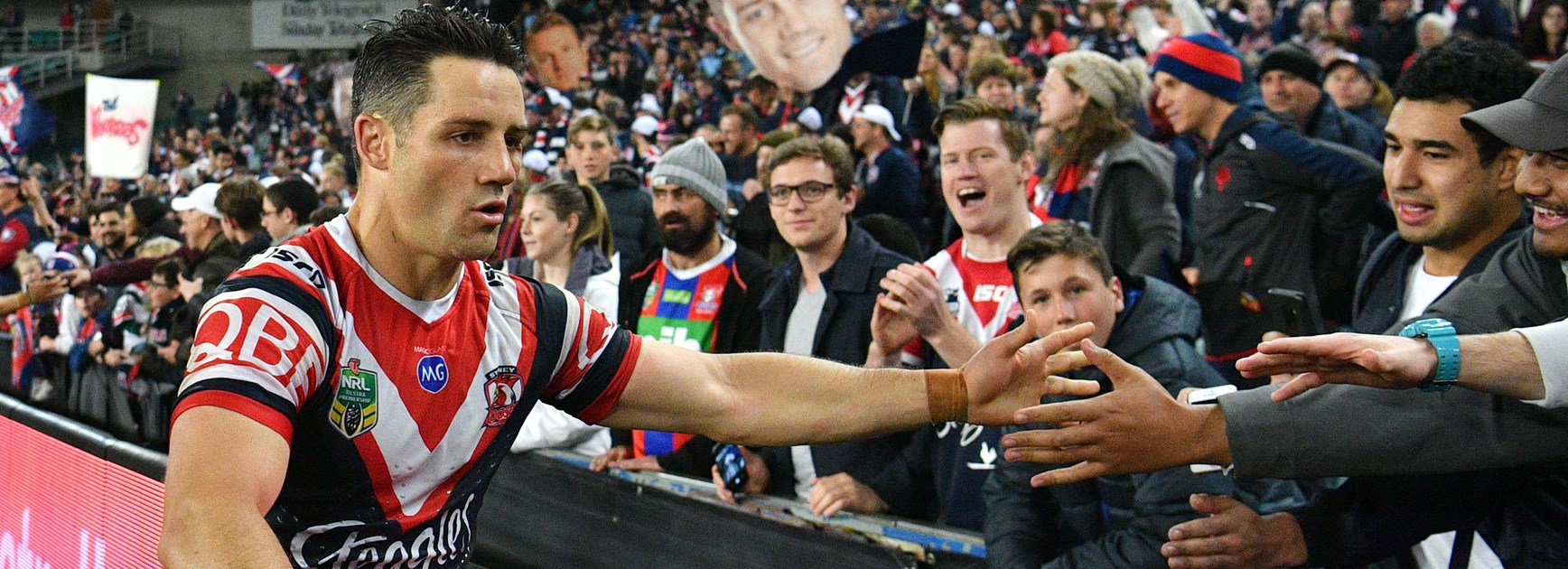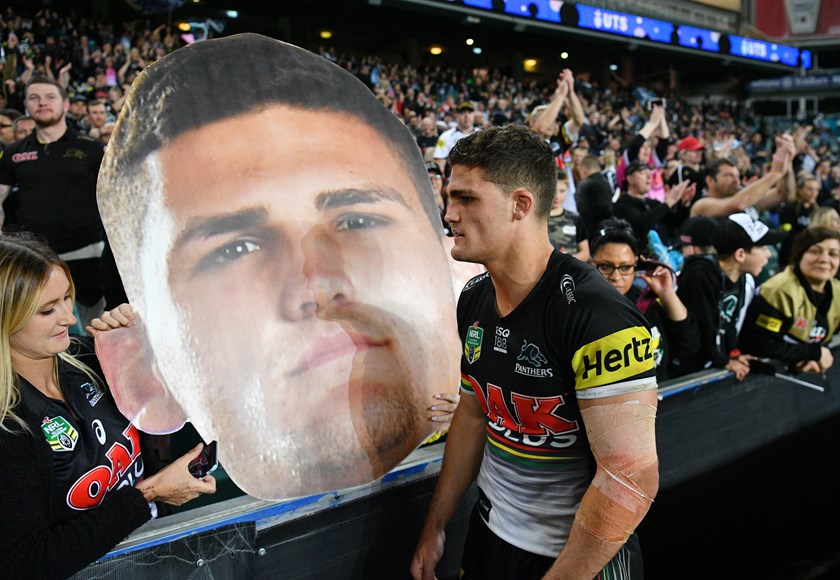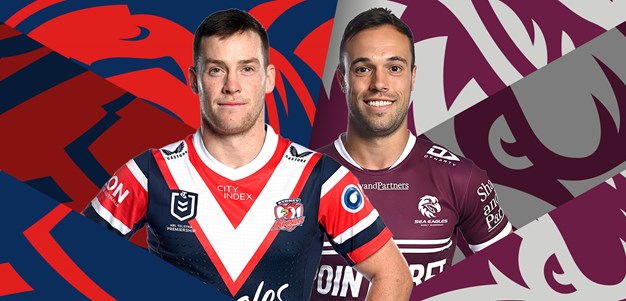
The closest premiership race on record has led to the tightest finals contest in NRL history, and Allianz Stadium is expected to post its biggest attendance when Sydney Roosters and South Sydney continue their 110-year rivalry in Saturday night's grand final qualifier.
As the bulldozers are prepared to start demolition work on the 30-year-old venue, the Roosters and Rabbitohs are expected to exceed the NRL's Allianz Stadium record of 41,620 for the St George Illawarra-Wests Tigers preliminary final in 2005.
With Allianz Stadium now boasting a 45,000 capacity, the game could also better the biggest rugby league attendance of 42,482 for the 1997 ARL grand final between Manly and Newcastle.
The anticipated sellout contrasts with the 19,211 crowd for last Friday night's semi-final between Cronulla and Penrith at the same venue. That match left many asking after the Sharks gripping 21-20- win why there hadn't more fans in attendance.
The match was one of three 2018 finals games decided by a field goal – equaling the record for one point results from the 2014 finals and bettering the 1946, 1948, 1969, 1978, 1994 and 2015 play-offs, which each had two matches with one point margins.

However, the attendance was the second lowest for a finals match between two Sydney teams since the NRL scrapped the policy of allowing teams hosting play-offs at suburban venues in 2011, with only last year's Manly-Penrith clash at Allianz Stadium (15,408) drawing a smaller crowd.
The fact that the Sea Eagles, Panthers and Sharks also dominate the list of lowest crowd figures for finals matches at Allianz Stadium and ANZ Stadium against non-Sydney teams highlights the challenges faced by clubs on the edges of Australia's largest city.
Cronulla and Penrith are Sydney's newest stand-alone clubs - having been admitted to the competition in 1967 - and many fans who live in those areas grew up supporting more established teams favoured by their families, or have moved there and taken their allegiances with them.
Ticketing and membership data suggests the Rabbitohs are one of the best-supported clubs – if not No.1 - in western Sydney, while St George Illawarra also have a broadly-spread fan base.
This was backed up by the results of NRL.com's recent fan poll, in which more than 50,000 respondents were asked to nominate the club they supported and the Rabbitohs (8.9%), Dragons (7.2%) and Roosters (7.1%) finished behind only Brisbane (13.9%) and the Warriors (10.9%).
An NRL supporter ladder compiled by Roy Morgan Research Institute and published last weekend ranked Brisbane No.1, ahead of Melbourne, North Queensland, Wests Tigers, Parramatta, Souths, Canterbury and the Dragons.
The Broncos are also Australia's most watched sporting team, with Fairfax Media reporting last week that the club attracted a cumulative audience of more than 18 million for their regular season matches this year.
The Cowboys were the NRL's second most-watched team, with a cumulative audience of almost 15 million, while the Roosters (14.3m) were No.1 among Sydney's nine clubs.
The absence of a Queensland team in the last six sides in the play-offs explains a decline in television ratings as viewer numbers in Brisbane were down 45 per cent last weekend compared to the 2017 semi-finals.
With just 17,168 fans at ANZ Stadium for the Panthers-Warriors elimination final and 17,306 at AAMI Park for the Storm-Rabbitohs qualifying final, play-off crowds are also down but across the season attendances were up 3.8per cent to an average of 15,675.
The Warriors (18,999), Knights (18,974), Rabbitohs (17,574), Tigers (17,291), Dragons (16,606) were the clubs to experience the largest growth.
Top 5 Plays of the Week – Finals Week 2
Penrith's average home attendances of 14,196 were the club's best since 2004 when they attracted average crowds of 17,263 on the back of the previous year's premiership success but they have been relatively steady for the past decade.
Cronulla's average home attendance of 12,700 was down on their 14,579 average in 2016, when the Sharks won their first title, but is also in keeping with crowd figures at Southern Cross Group Stadium since the Super League war.
While the Panthers bought 19 busloads of supporters to Allianz Stadium last Friday night, it was hardly a surprise that two clubs with a combined average attendances of 27,181 drew a crowd of less than 20,000 as fans of both teams needed to travel across Sydney in peak hour traffic.
Some fans from Penrith said the trip to Moore Park had taken two hours.
While some argue that a return to the NRL's pre-2011 policy of allowing Sydney clubs to host some play-off matches at their home grounds would look better on television, the reality is that no finals game played at a suburban venue between 1998 and 2010 ever drew a crowd of 20,000.
However, the opening of the new Western Sydney Stadium next season is expected to provide the NRL with an ideal venue for hosting finals matches such as last Friday night's Sharks-Panthers clash or games featuring out-of-town teams.
Wests Tigers have announced that they will play four home matches at the 30,000 seat stadium in Parramatta from next season and other clubs are expected to follow suit.
The views in this article do not necessarily express the opinions of the NRL, ARLC, NRL clubs or state associations.
Secure a match ticket:
A limited amount of tickets are still left to enjoy the 2018 Telstra Premiership NRL Grand Final. Don’t miss your chance to secure your seat via Ticketek HERE
Travelling for the grand final?
You can secure your tickets and travel all in the one place with ‘build your own’ packages still available HERE





